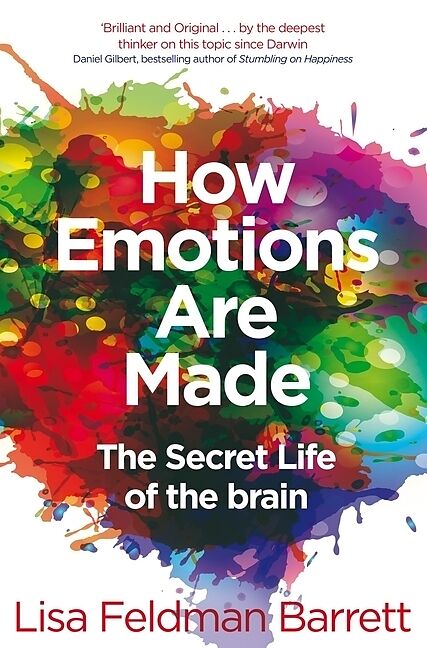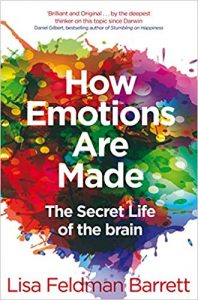

However, there isn't as such a clear classical view of emotions. Those who do not will likely to be misled as Barrett is anoyingly imprecise.įx Barrett put her perspective in contrast to what she calls "the classical view of emotions". The book is not deep enough for those who has prior knowledge in cognitive psychology/neuro biology. The article is more consise than the book, while avoiding some of the 'misdirections' the book delivers. I will suggest instead reading the article "The theory of constructed emotion: an active inference account of interoception and categorization" by the author. This message is in line with the frequently quoted Shakespeares' (Hamlet) ".there is nothing either good or bad, but thinking makes it so". The basic message of this book is that emotions are subjective and constructed, and that neuro science proves it so.

Revising that conception of emotion isn't just good science, Barrett shows it's vital to our wellbeing and the health of society itself.

This new view of emotions has serious implications: when judges issue lesser sentences for crimes of passion, when police officers fire at threatening suspects, or when doctors choose between one diagnosis and another, they're all, in some way, relying on the ancient assumption that emotions are hardwired into our brains and bodies. Emotions don't exist objectively in nature, Barrett explains, and they aren't pre-programmed in our brains and bodies rather, they are psychological experiences that each of us constructs based on our unique personal history, physiology and environment. But what if it's wrong? In How Your Emotions Are Made, pioneering psychologist Lisa Feldman Barrett draws on the latest scientific evidence to reveal that our ideas about emotion are dramatically, even dangerously, out of date - and that we have been paying the price. This understanding of emotion has been around since Aristotle. The thrill of seeing an old friend, the sadness of a tear-jerker movie, the fear of losing someone you love - each of these sensations arises automatically and uncontrollably within us, finding expression on our faces and in our behaviour, and carrying us away with the experience.

When you feel anxious, angry, happy, or surprised, what's really going on inside you? Most scientists would agree that emotions come from specific parts of the brain, and that we feel them whenever they're triggered by the world around us.


 0 kommentar(er)
0 kommentar(er)
